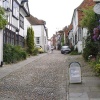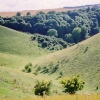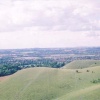Please login or click here to join.
Forgot Password? Click Here to reset pasword
 |  |  |  |  |  |
| Ron Brind Posts: 19041 Joined: 26th Oct 2003 Location: England | quotePosted at 16:11 on 13th February 2011 What a great bunch of guys from Port Isaac, who appear to have their feet firmly on the ground. According to a television programme this morning they may be visiting the USA, Australia and New Zealand with an offer of a film in the making also! Good luck to them I say, really down to earth fella's. See them at the following link and then let me know what you think please members: http://www.youtube.com/watch?v=TW5IdBWmWGc
|
| Vince Hawthorn Posts: 12758 Joined: 19th Apr 2010 Location: UK | quotePosted at 16:44 on 13th February 2011 Ron, this is one example of why we can be proud of the Cornish (they are British but not English) , the latest government debarcle is the Devonwall issue. The movement of parliamentary boundries proposes to have one boundary stradling the Tamar encompassing some of Devon and some of Cornwall. This would create an area of two totally different areas with different needs and outlooks. The history and heritage of Cornwall is totally unique and should be recognised as such. Sorry I digress we are talking of the Port Issac singers, yes singing is well established in Cornwall with fishermen and the miners all having a wonderful reputation. Many male voice choirs exist with many traditional songs such as " Trelawny", "Going up Camborne Hill- Coming Down", "Hail to the Homeland" or many traditional hymns all sung regularly and with enthusiasm. If ever you get a chance listen to "This Isn't England" by Jim Wearne,a Canadian of Cornish descent. |
| Ruth Gregory Posts: 8072 Joined: 25th Jul 2007 Location: USA | quotePosted at 01:53 on 14th February 2011 Oh, they're great! They definitely have that Celtic sound. Port Isaac is Portwenn, innit?
|
| Ruth Gregory Posts: 8072 Joined: 25th Jul 2007 Location: USA | quotePosted at 02:42 on 14th February 2011 |
lancashirelove Posts: 1986 Joined: 18th Feb 2009 Location: UK | quotePosted at 10:57 on 14th February 2011 Sorry lads, rather watch this think Ruth will like this too! |
| Ron Brind Posts: 19041 Joined: 26th Oct 2003 Location: England | quotePosted at 11:03 on 14th February 2011 More like Fisherman's bait Mike? lol |
| Ruth Gregory Posts: 8072 Joined: 25th Jul 2007 Location: USA | quotePosted at 05:00 on 15th February 2011 Oh, Ron!!! I thought it was going to be worms or minnows or something. lol Very nice, Michael. Orla Fallon is appearing here in the fall. But I was thinking more of people like the Dubliners. After all Cornwall is one of the five Celtic nations, along with Scotland, Wales, Ireland and the Brittany portion of France.
|
| Ruth Gregory Posts: 8072 Joined: 25th Jul 2007 Location: USA | quotePosted at 05:03 on 15th February 2011 Get yer coat, Ron.
|
| Ted Posts: 733 Joined: 14th Jan 2009 Location: Netherlands | quotePosted at 15:07 on 15th February 2011 On 14th February 2011 01:53, Ruth Gregory wrote:
We've been there in 2003 and have seen these guys performe. |
lancashirelove Posts: 1986 Joined: 18th Feb 2009 Location: UK | quotePosted at 15:37 on 15th February 2011 Where did they come from? We do know is that Celts gradually infiltrated south western Britain and Ireland over the course of the centuries between about 500 and 100 B.C. from north western France There was probably never an organized Celtic invasion; for one thing the Celts were so fragmented and given to fighting among themselves that the idea of a concerted invasion would have been ludicrous. The Celts were a group of peoples loosely tied by similar language, religion, and cultural expression. They were not centrally governed, and quite as happy to fight each other as any non-Celt. They were warriors, living for the glories of battle and plunder. They were also the people who brought iron working to the British Isles. They beheaded their opponents in battle and it was considered a sign of prowess and social standing to have a goodly number of heads to display. The main problem with the Celts was that they couldn't stop fighting among themselves long enough to put up a unified front. Each tribe was out for itself, and in the long run this cost them control of Britain to the Saxons and then Normans. |